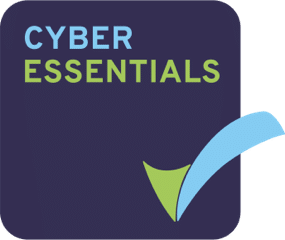Video calling software like Zoom, Skype, and Teams are the new ways companies are recruiting during this crisis, as businesses learn to adapt to social distancing policies. Such technology may be influential in creating a new way of communicating with, and ultimately onboarding applicants into a business.
Interviewing at the best of times is daunting. Our Senior Recruiter, Lesley, has advised that while many businesses are currently working remotely, the standard for hiring talent has not relaxed.
To ensure that you are as prepared as you can be for your interview, the team at ASL have come up with a step-by-step guide to help you settle your nerves and attend your interview with confidence.
Can you hear me?
Making sure you know what platform your interview will be taking place on and that you fully charge the device you’ll be using are the first steps to success. It’s best to check your camera and microphone work at least a few hours before the interview in case you run into any problems. Doing this will give you time to inform the interviewer if you are unable to use their chosen platform.
You can practice using the technology by calling friends or family, or the test call function if there is one. If you’re unfamiliar with the platform, or need help with a technical issue, searching the platform company’s help pages can offer some useful insights.
During the interview you are going to have a lot to say, and you want the interviewer to hear it all. However, technology sometimes fails. One solution is to start the interview by providing a telephone number to the interviewer, so if something goes wrong, the interview can continue by phone.
Can you see me?
Once you know everything is working, look around and ensure you are in a quiet location where you won’t be interrupted during your interview. Check your background to see if there is anything behind you which could distract the interviewer from you.
Where you position the camera is also crucial. You don’t want to be so close to the camera that your face is cut off by the screen, but not so far away that the microphone can’t pick up your voice. Setting the camera so that your head and shoulders are fully visible on-screen should ensure you are seen and heard by the interviewer.
You also want to watch out for the lighting in your interview area. If you have a window behind where you’ll be seated, you may want to consider moving, as those looking at you might only see your silhouette. If the interviewer can’t see you clearly, they will not get any eye contact, and you may be remembered only for your faceless interview.
Has anything else changed?
The answer to this may be dependent on the company interviewing you. In short, nothing about the general recruitment process has changed.
Prepare as you would for a face to face interview, by researching the company and position for which you’re applying. Having a glass of water, your CV, and a pen and paper handy is also a good idea to prompt you with answers or take notes. Although your interview will be from home, it is still important to dress professional attire as it gives the impression that you’re serious about the job. Try to maintain eye contact as much as possible and smile to show that you’re interested in the role.
Take your time when you are speaking and remember there may be a delay between each person speaking. Taking a deep breath and remaining calm will help you to not talk over the interviewer if there is a delay on the call.
How should I end the interview?
There won’t be anyone showing you out of the office, so finishing the interview will be just ending the call. Once you’ve asked those important final questions, remember to press the end call button. The last thing you’ll want is for the interviewer to still be connected when you breath that final sigh of relief.







